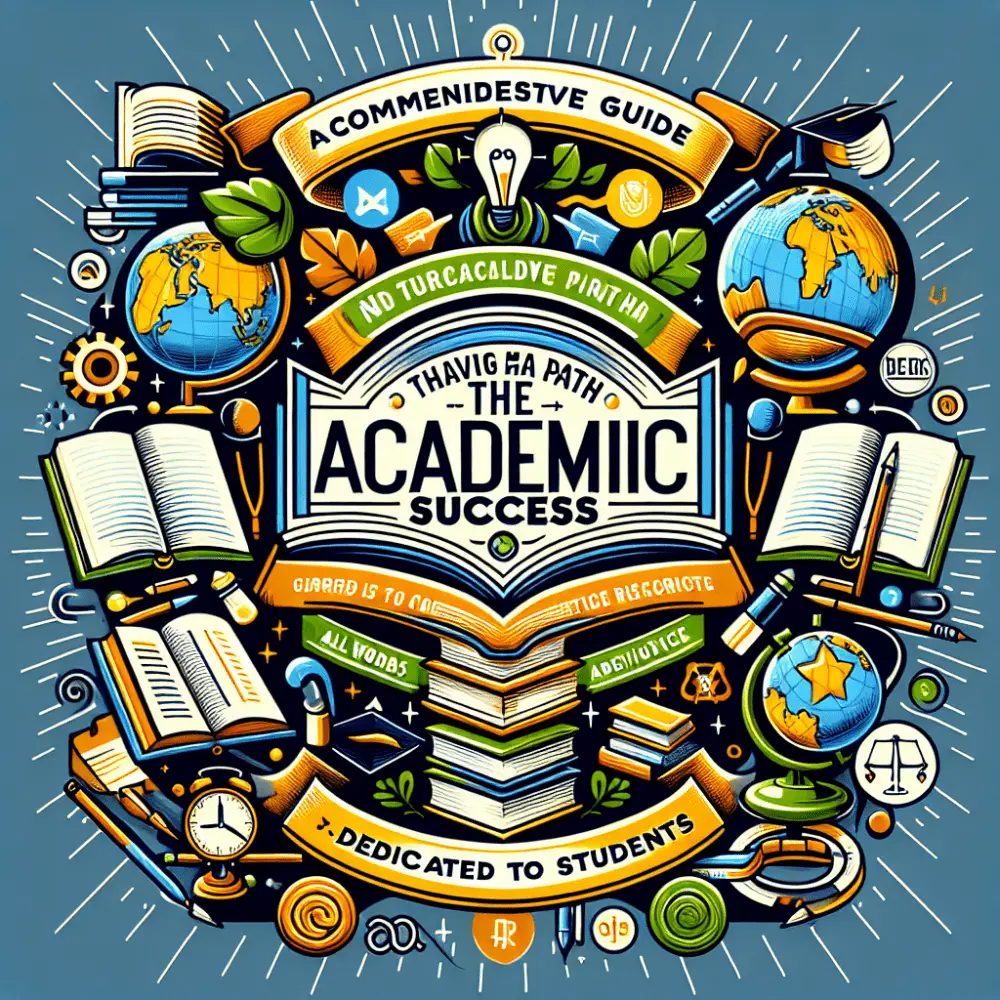
A Comprehensive Student Guide: Navigating the Path to Academic Success
Being a student can be both exciting and challenging. With so many responsibilities and expectations, it’s easy to feel overwhelmed. However, by equipping yourself with the right tools and strategies, you can navigate the path to academic success with ease. This comprehensive student guide will provide you with valuable insights and practical advice on how to excel in your studies.
Whether you’re just starting your academic journey or looking for ways to enhance your current performance, this guide is designed to help you achieve your goals. From effective study techniques to time management tips, we’ll cover a variety of topics that are crucial for academic success.
Setting Goals and Time Management
One of the first steps towards academic success is setting clear and achievable goals. By defining what you want to accomplish, you can create a roadmap for your studies. Break down your larger goals into smaller, manageable tasks that can be completed within a specific timeframe.
Time management is also essential for students. Create a schedule that allows for dedicated study time, as well as breaks for relaxation and rejuvenation. Prioritize important tasks and eliminate distractions during your study sessions. Utilize tools such as calendars or task-management apps to stay organized and on track.
Effective Study Techniques
Finding the right study techniques can significantly enhance your learning experience. Experiment with different methods until you find what works best for you. Some popular techniques include:
- Active Reading: Engage with the material by taking notes or summarizing key points as you read.
- Flashcards: Use flashcards to memorize important facts or concepts.
- Group Study: Collaborate with classmates to discuss and review course material.
- Mind Mapping: Create visual diagrams to connect ideas and enhance understanding.
In addition to these techniques, it’s important to find a study environment that suits your needs. Some students thrive in silence, while others prefer background noise. Experiment with different locations, such as libraries or coffee shops, to find the setting where you can concentrate best.
Effective Note-Taking
Note-taking is a vital skill that can improve your understanding and retention of information. During lectures or while reading textbooks, develop a system for organizing your notes. Use headings and bullet points to structure the content and make it easier to review later. Additionally, consider using color coding or highlighting key points for quick reference.
Active listening is crucial during lectures. Pay attention to the instructor’s emphasis on certain topics or concepts, as this can indicate their importance in exams or assignments. Don’t hesitate to ask questions if something is unclear – clarifying doubts will strengthen your understanding of the subject matter.
Maintaining a Healthy Balance
Achieving academic success requires more than just studying. It’s essential to maintain a healthy balance between academics, extracurricular activities, and personal life. Engage in physical exercise regularly to keep your mind and body in peak condition. Take breaks from studying by pursuing hobbies or spending time with friends and family.
Additionally, prioritize self-care by getting enough sleep, eating nutritious meals, and managing stress effectively. Developing healthy habits will ensure that you have the energy and mental clarity necessary for academic excellence.
Frequently Asked Questions
1. How can I improve my time management skills as a student?
To improve time management skills, create a schedule, prioritize tasks, eliminate distractions, and utilize organizational tools.
2. What are some effective study techniques for better learning?
Some effective study techniques include active reading, flashcards, group study, and mind mapping.
3. How can I take better notes during lectures?
To take better notes during lectures, develop an organized system using headings and bullet points. Active listening and asking questions for clarification are also important.
4. How do I maintain a healthy balance between academics and personal life?
Maintaining a healthy balance involves engaging in regular physical exercise, taking breaks to pursue hobbies or socialize, and prioritizing self-care through sleep, nutrition, and stress management.
Conclusion
Navigating the path to academic success requires determination, discipline, and effective strategies. By setting clear goals, managing your time efficiently, employing effective study techniques, improving note-taking skills, and maintaining a healthy balance in life, you can pave the way for academic excellence. Remember that everyone’s journey is unique – find what works best for you and stay committed to your goals. With dedication and perseverance, success is within reach!












